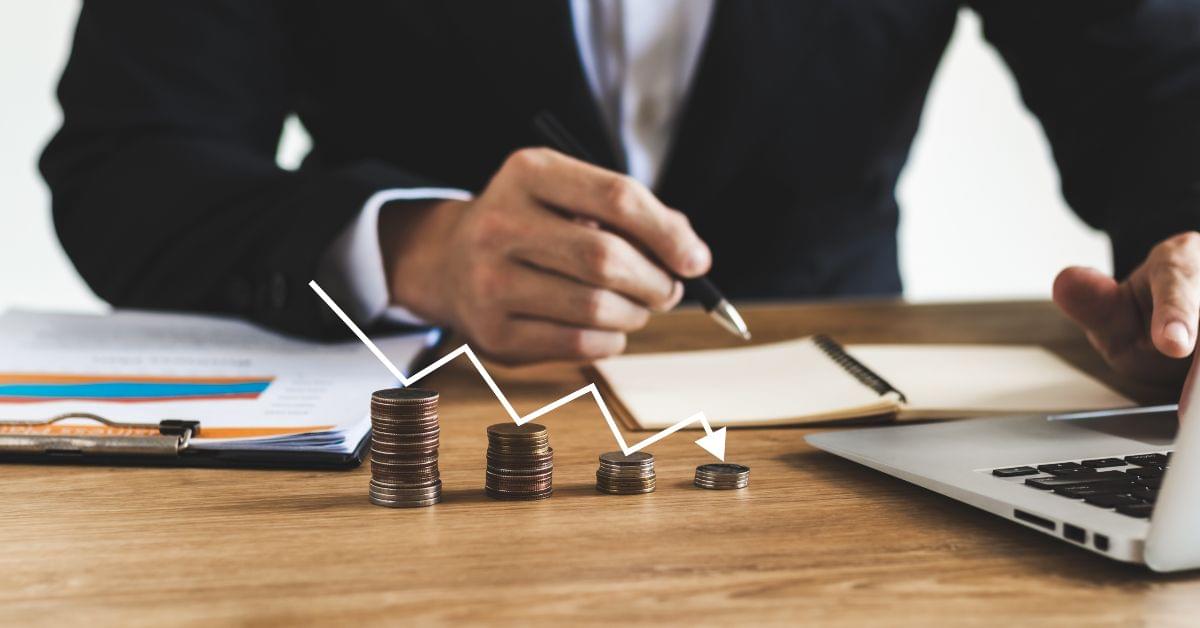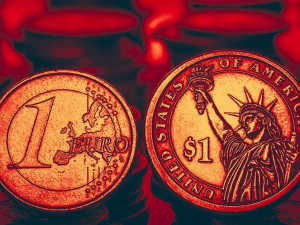
The word recession is getting thrown around a lot recently, but what does it actually mean? And what do you need to do to prepare for one?
Here is everything you need to know about recessions and how you can survive one as best you can.

What does “recession” mean?
A recession is simply a period of economic decline, typically defined as a decline in a country's gross domestic product (GDP). Generally speaking, a recession will mean the economy will worsen, so unemployment rates tend to rise and businesses may struggle or even fail. Minor recessions are considered a normal part of the economic cycle, but some recessions can be huge and have a severe impact on individuals and communities.
There are varying ways to define a recession, and no specific way is correct. Many countries, for example the UK, define a recession as when GDP is down for two consecutive quarters, but it is common for many countries (such as the US) to take a more scientific look at the economy, before announcing a recession.
The National Bureau of Economic Research (NBER) in the US defines a recession as “a significant decline in economic activity spread across the economy, lasting more than a few months, normally visible in production, employment, real income, and other indicators.”
Why do recessions happen?
Recessions happen for a number of reasons which are often unclear, even to the most astute economists. Even when they occur, there can be great debate about what the root cause was, and what can be done to prevent them in future.
Sometimes to combat inflation, governments can introduce fiscal policies, such as raising interest rates, which can be triggers for a recession, but one that many would argue is worth it for overall financial stability.
It can also be associated with steep increases in the price of inputs used for goods and services. For example, if oil prices suddenly rise, this can have huge effects on the economy.
A main cause is often financial problems or inefficiencies within the system. For example, the recession in 2007-2009 (referred to as the Great Recession) was triggered by years of abuse of mortgage-backed securities in the US, as well as the collapse of the housing market.
An increase in asset prices, meaning that things generally become more expensive, will often result in an increase in credit, as people borrow more money to pay for these assets. This will cause people to start taking on more debt or at least borrowing more freely. Banks and lenders will also see this as an opportunity, as they can make more profit from interest payments.
However, this can set off a dangerous situation, where banks have lent out too much money, which their customers are now unable to pay back. This is made worse by social effects. For example, mortgages can become cheaper and more accessible, so it becomes much more likely that people will find a better offer and sell or try to take on a mortgage and end up defaulting. Like many economic and political shifts, it will have a snowball effect and can begin to increase exponentially.
In this case, banks will see that their profits could be about to turn, so they will become extremely and suddenly strict about their lending practices, and increase the criteria to take on credit. This is what is known as a credit crunch, and can be a big factor in causing a recession.
What happens in a recession?
In a recession, things will get worse economically. It will be a lot harder to borrow money and harder to get a job. Job redundancies will become more frequent, and things will become more expensive. These effects will happen as the economy pares back on its previous spending. Debts will be called in as people look to save money (and interest rates are raised), and prices will increase because businesses want to ensure profits in the coming storm.
For you personally, this might mean that your monthly bills may increase, there might be redundancies at your workplace, and clients may dry up for your business.

How long do recessions last?
The duration of a recession is difficult to define, as the economy will gradually move into a recession and then gradually out of one – and people will suffer repercussions long after. But on average, the period for a defined recession will be anywhere from two to eighteen months.
How can I survive a recession?
There are many ways to help you and your family weather a recession. Recessions are common, and most people will see one in their lifetime. The current economic situation in the UK points towards potentially one of the longest recessions that we will have seen, so it is important that you understand all the preparations that you might need to make.
Create an emergency fund
With the economy going sour, it’s best to make sure that you have enough funds to cover yourself if any sources of your income disappear. A good rule of thumb is to have three months’ worth of savings in an emergency fund, potentially more if the recession is particularly bad.
Pay off debt
To be in some debt is part of everyday life, but to have as little debt as possible is the ideal situation. During a recession, it is extremely important to pay off as much of your debt as you can. A recession often causes interest rates to rapidly increase, so if you have debt repayments to make, these can often increase.
Diversify investments
Stock prices can fall off a cliff when a recession hits, so your portfolio may reduce significantly in value. Spreading out your investments and ensuring that you have a diversified portfolio is extremely important. Investing in bonds, securities from other countries, and commodities like oil and gold can be a great way to protect your money.
Reduce expenses
Cutting expenses can be a great way to find extra cash. Consider using public transport or cycling and walking instead of using your car. You could even consider changing a housing situation, such as getting a roommate or living with family.
Take a look at your expenses frequently and see if you are spending excessively on anything you don’t need. If you are transferring a lot of money abroad, finding cheaper currency exchange fees with a reliable FX company could be a great way to reduce spending too.
Caleb Hinton
Caleb is a writer specialising in financial copy. He has a background in copywriting, banking, digital wallets, and SEO – and enjoys writing in his spare time too, as well as language learning, chess and investing.



